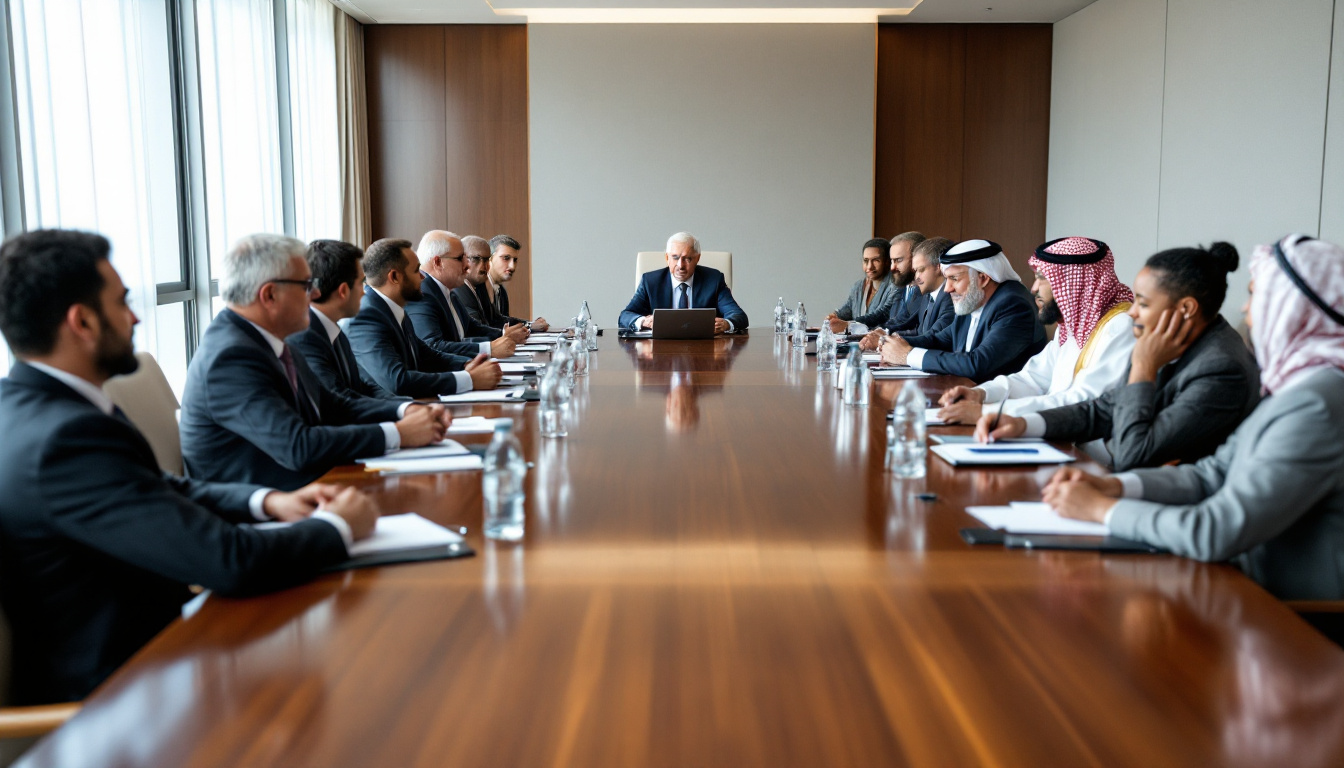Alfred Abou Eissa proposes an innovative approach to leadership, transforming conflict zones into opportunities for international dialogue. His concept of global legacy aims to leave a positive and lasting imprint in a complex and ever-evolving world. By promoting sustainable peace and encouraging collaboration among new diplomats, Eissa redefines the contours of modern leadership, placing the heirloom footprint at the heart of conflict management and personal development strategies.
From conflict zones to the promotion of sustainable peace

Conflict zones are often perceived as hotspots of tension and division. However, Alfred Abou Eissa sees them as fertile grounds for transformation and renewal. By focusing on sustainable peace, he encourages leaders to adopt strategies that aim not only to resolve immediate conflicts but also to establish solid foundations for long-term peaceful coexistence. This approach draws inspiration from the study of international conflicts and the importance of global legacy in building resilient societies (source).
- Establishment of inclusive dialogues
- Development of conflict resolution mechanisms
- Promotion of inter-institutional cooperation
By promoting the Dialogue Horizons, Eissa creates bridges between previously antagonistic groups, thereby facilitating mutual understanding and respect for diverse cultural and political heritages. This method relies on recent studies showing that a leader’s heirloom footprint can positively influence the dynamics of a conflict and lead to sustainable solutions (source).

A key element of this approach is the ability to identify and value link leaders, those who possess the unique skill of weaving strong relationships and navigating the complexities of conflict contexts. These leaders play a crucial role in creating bridges to the future, facilitating the transition from a state of conflict to one of collaboration and peace.
The role of new diplomats in a globalized world

In the era of globalization, new diplomats must adopt diverse skills and an expanded vision to navigate international relations effectively. Alfred Abou Eissa emphasizes the importance of training leaders who are capable of understanding the complex dynamics of contemporary conflicts and acting as agents of positive change. The international resonance of their actions helps shape a sustainable legacy, influencing not only their own nations but also the global community.
- Advanced intercultural training
- Negotiation and mediation skills
- Integrated strategic vision
The new diplomats must also be link leaders, capable of connecting different cultures and promoting mutual understanding. This ability to create alliances and foster strong partnerships is essential for achieving peace & legacies objectives. By relying on initiatives such as executive coaching programs (source), Eissa demonstrates how the personal and professional development of diplomats can have a significant impact on international relations.

In conclusion, new diplomats play a fundamental role in transforming conflict zones into international scenes of cooperation and peace. Their ability to navigate complex environments and promote legacy-driven leadership strategies is essential for a harmonious future.
Legacy-driven leadership strategies

For Alfred Abou Eissa, effective leadership must be intrinsically linked to the global legacy one wishes to leave behind. This vision goes beyond immediate successes and seeks to establish sustainable foundations for future generations. By integrating neuro leadership practices and innovative approaches based on neuroscience (neurosciences-promettant-un-retour-sur-investissement-de-37-fois-pour-les-dirigeants/”>source), Eissa proposes methods that enhance resilience and effectiveness among leaders in varied contexts.
- Clear definition of long-term objectives
- Creation of an environment conducive to innovation
- Encouragement of social responsibility
Link leaders adopt strategies that promote not only their own development but also that of their teams and their organization. This holistic approach creates a bridge to the future towards more ethical and responsible management, where every decision is made considering its long-term impact. Moreover, Eissa emphasizes the importance of international resonance, which is the ability of leaders to influence and inspire beyond their own borders (source).
A crucial aspect of legacy-driven leadership is the ability to adapt strategies according to global changes and emerging challenges. For example, the rise of digital technologies and instant communications requires leaders who can effectively integrate these tools to improve collaboration and decision-making. Furthermore, Eissa encourages leaders to focus on their heirloom footprint, ensuring that their actions today will ideally benefit future generations.
By adopting these strategies, leaders can not only successfully navigate complex environments but also leave a significant legacy that contributes to sustainable peace and global prosperity.
Innovation and leadership development in international organizations
In a constantly evolving world, leadership innovation is essential to meet current and future challenges. Alfred Abou Eissa highlights the importance of developing training programs that integrate the latest research in neuroscience and organizational psychology. These programs aim to strengthen leaders’ skills, with a focus on resilience, adaptability, and the ability to inspire others.
- Integration of neuroscience in executive coaching
- Development of crisis management skills
- Promotion of creativity and innovation
Link leaders benefit from neuro leadership techniques that help them better understand and manage their own emotional reactions as well as those of their teams. This deep understanding of internal and external dynamics enables more effective conflict management and better decision-making. Additionally, Eissa offers interactive workshops and personalized coaching sessions, allowing leaders to develop a clear and coherent legacy vision.
International organizations, whether public or private, increasingly recognize the need to invest in the continuous development of their leaders. By adopting innovative approaches, such as transformational coaching, they ensure that their leaders are well-equipped to face complex challenges and promote an organizational culture based on collaboration and peace & legacies.
The impact of legacy-driven leadership on international relations
A legacy-driven leadership has profound implications for international relations. By prioritizing long-term objectives and adopting a global vision, leaders can positively influence international policies and foster increased cooperation between nations. Alfred Abou Eissa argues that this approach helps build strong and lasting alliances, essential for maintaining international resonance and promoting sustainable peace.
- Strengthening strategic alliances
- Promotion of proactive diplomacy
- Encouragement of shared responsibility
Through initiatives such as dialogue forums and international partnership programs, leaders can establish common ground where national and global interests align. This synergy fosters innovative and inclusive solutions to global issues, whether related to climate change, international security, or economic development. Moreover, by investing in community projects and sustainable development initiatives, leaders leave a tangible heirloom footprint that benefits all stakeholders.
By focusing on a long-term legacy, leaders can also inspire future generations to pursue peace & legacies objectives, creating a positive dynamic that endures well beyond their individual mandates. This long-term perspective is essential to ensure global stability and prosperity by guaranteeing that the decisions made today will continue to bear fruit tomorrow.
#>












